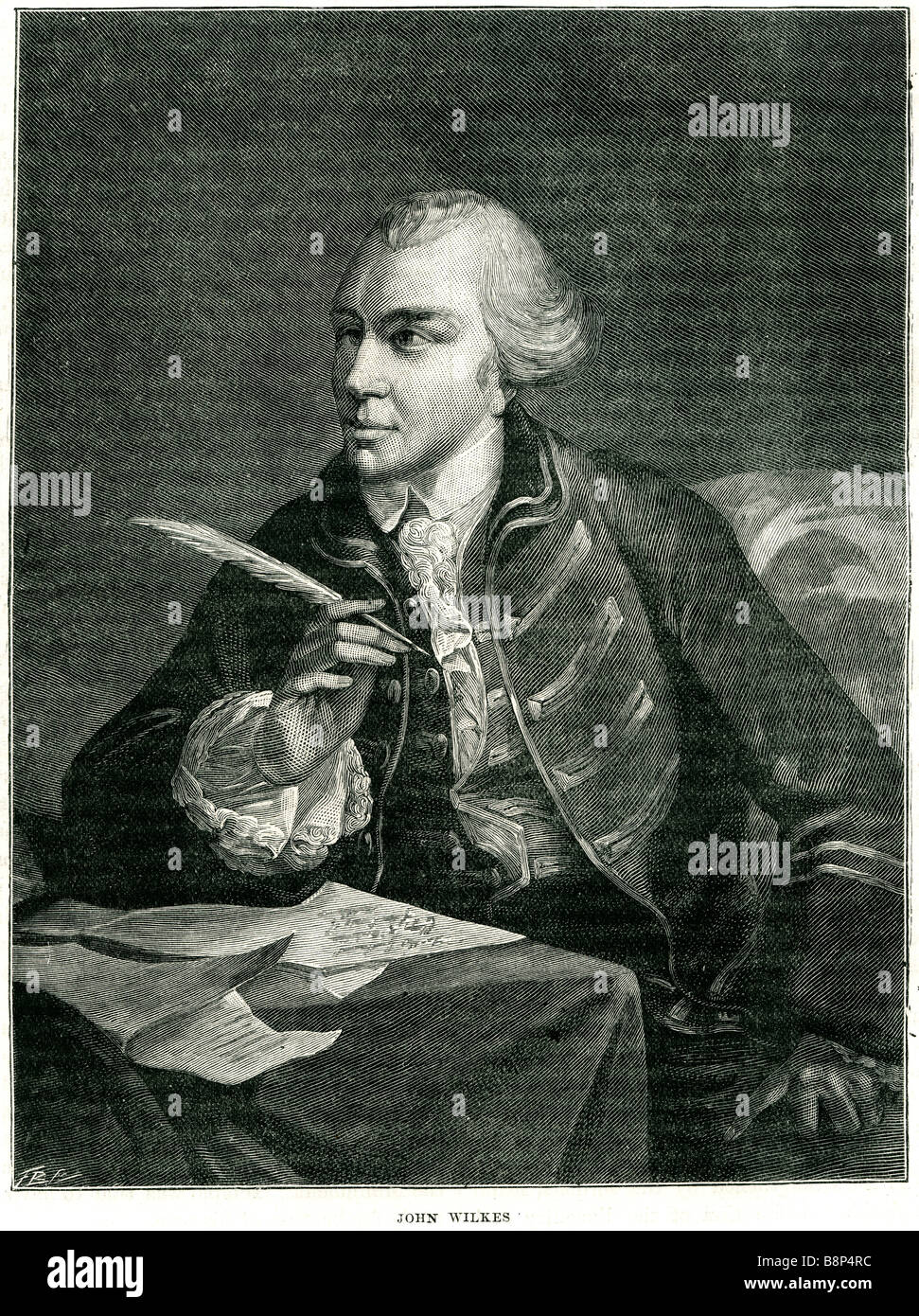john wilkes 17 October 1725 – 26 December 1797 English radical journalist politician verbatim account parliamentary debate

Image details
Contributor:
19th era / Alamy Stock PhotoImage ID:
B8P4RCFile size:
53.9 MB (7.7 MB Compressed download)Releases:
Model - no | Property - noDo I need a release?Dimensions:
3754 x 5022 px | 31.8 x 42.5 cm | 12.5 x 16.7 inches | 300dpiMore information:
John Wilkes (17 October 1725 – 26 December 1797) was an English radical, journalist and politician. In the Middlesex election dispute, he fought for the right of voters—rather than the House of Commons—to determine their representatives. In 1771 he was instrumental in obliging the government to concede the right of printers to publish verbatim accounts of parliamentary debates. In 1776 he introduced the first Bill for parliamentary reform in the British Parliament. Wilkes' increasing conservatism as he grew older caused dissatisfaction among radicals and was instrumental in the loss of his Middlesex seat at the 1790 general election. Wilkes then retired from politics and took no part in the growth of radicalism in the 1790s. Wilkes was initially a supporter of William Pitt the Elder. When the Scottish John Stuart, 3rd Earl of Bute, came to head the government in 1762, Wilkes started a radical weekly publication, The North Briton, to attack him, using an anti-Scots tone. Typical of Wilkes, the title was a satirical take on the Earl's newspaper, The Briton, "North Briton" referring to Scotland. Wilkes was charged with seditious libel over attacks on George III's speech endorsing the Paris Peace Treaty of 1763 at the opening of Parliament on 23 April 1763. Wilkes was highly critical of the speech, which was recognized as having been written by Bute, using issue 45 of The North Briton to attack it. The issue number in which Wilkes made his critical editorial was highly appropriate, because the number 45 was synonymous with the Jacobite uprising of 1745, commonly known as "The '45". Bute, being Scottish and highly controversial as an adviser to the King, was associated in the popular eye with Jacobitism and it was this that Wilkes played on. The King felt personally insulted and general warrants were issued for the arrest of Wilkes and the publishers on 30 April 1763. Forty-nine people, including Wilkes himself, were arrested under the warrants. Wilkes, however, g